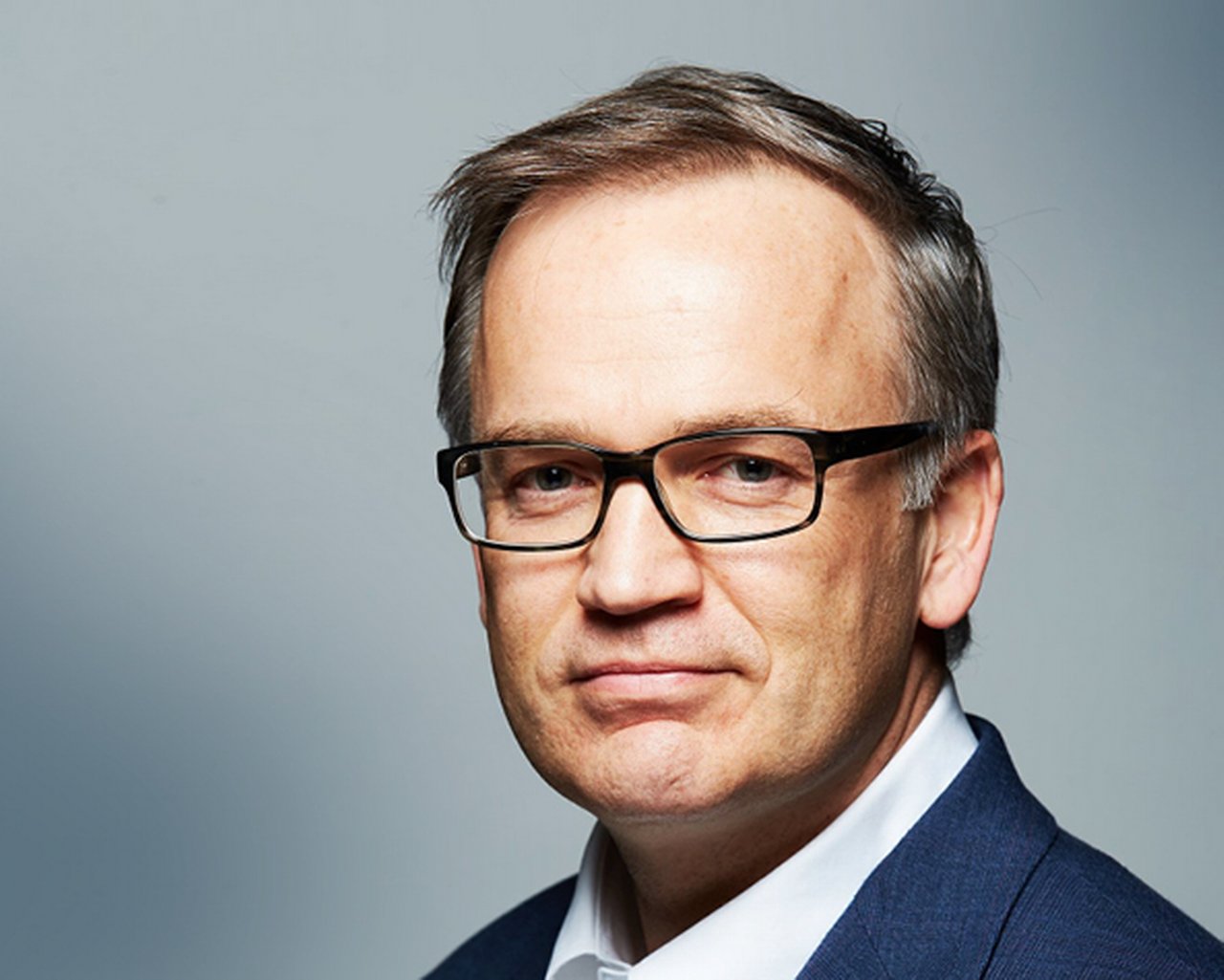
Responsible finance, now and post Covid-19
Kamran Khan, Deutsche Bank’s Head of Environment, Social and Governance (ESG) for Asia Pacific, talks about responsible finance in a post-Covid world, new trends in ESG and how Deutsche Bank is supporting the recovery from the pandemic, in particular in Asia.
Mr. Khan, you are responsible for defining and executing ESG strategy across all Deutsche Bank business divisions for Asia Pacific. What key lesson has the coronavirus pandemic taught the financial industry?
First, we can say that the pandemic has impacted the ESG market positively and has already brought about some key structural changes. In light of increasing market volatility as the pandemic emerged in the first quarter of 2020 and as environmental and social protests were staged around the world, asset managers were forced to assess their portfolios and identify possible risks to the value of their holdings. Many realised as a result of this exercise that they had underestimated the financial impact of environmental risk. That was one key lesson.
Asset managers also realised that they had not properly considered the financial impact of what we call stakeholder risks. For example, in reaction to the Black Lives Matter movement, some cosmetic companies had to take mark-downs on the value of brands that were associated with products such as fair skin creams.
These are likely to be structural changes because once an investor experiences a new risk – particularly in an organized asset management system – the associated analysis tends to become a permanent feature in future investment considerations.
ESG factors are now becoming investment considerations for the biggest fund managers in the world. Importantly, environment, social and governance considerations are not just the purview of ESG funds, they are increasingly being adopted by the mainstream – a significant shift that had already started to take place before the pandemic, but it has certainly established itself, accelerated this year and can no longer be ignored.
Will the pandemic alter the emphasis on the three ESG pillars, with social considerations becoming more prominent? What new ESG trends do you expect to see?
Social issues have always been important, but the financial services industry has not yet figured out how to measure social impact. In the wake of the pandemic the focus on social equity and other social issues has become more pronounced. Importantly, demand for social instruments is on the rise. So we should expect to see more activity here.
All three pillars have a role to play. You need good governance (G) for an environmental (E) programme to be successful. And social (S) issues also have to be taken into consideration. I always say to people show me a successful “E” programme that is delivering impact, and I’ll show you a good “E” programme that has good governance.
You cannot achieve success on the “E” side without “G”. Which brings us again to the “S” issue. It is not uncommon to see a company doing very solid work in terms of benefits to the environment – making solar panels, for example – but they forget their stakeholders, the “S” side. Of course this happens because environmental impact is usually quantifiable, whereas
social impact is less so. We will start to see ESG instruments offering a combination of “E” and “S” impact.
As for governance, for many in financial services, “G” starts and ends at corporate governance. But very soon, ESG will become a much more holistic field, also covering sovereigns, sub-sovereigns, government-linked entities and Public Private Partnerships, so “G” will take on different dimensions. How governments incorporate “G” into their sovereign instruments is going to be the next frontier in ESG. It is one of the most exciting areas but it is heavily dosed with political economy issues.
What impact is Covid-19 having on investors? And how much of a shift towards responsible investing do you expect?
Every day we hear how much capital is moving toward ESG. In the second quarter of this year, global net inflows into sustainable funds rose 72 percent (up 71.1 billion US dollars) compared to the previous quarter according to Morningstar. It is a very significant and an un-ignorable shift.
How is Deutsche Bank working with governments and global financial institutions to support the recovery from the pandemic?
There will be a number of different challenges to recovery from the pandemic. Once the medical response has ended, the focus will shift towards how to finance the economic recovery. Several bonds have already been issued around the world to support Covid-19 relief, including in Asia Pacific.
The next phase will involve managing the fiscal deficits, particularly in the emerging economies of Asia. Governments in Asia will need to raise significant amounts of capital to re-start economic activity at a time when their ability to service debt has been undermined by the pandemic. Blended finance will play an important role here.
It involves combining market borrowing at commercial rates and low cost borrowing or grants from international development finance institutions resulting in a lower “blended” cost of capital. Deutsche Bank can help countries develop blended finance programmes with clear ESG impact indicators and milestones. We are well-positioned for this role because we offer a combination of cutting-edge expertise in structuring and placing financial instruments with a refined understanding of how to monitor and measure ESG impact.
While ESG awareness in the financial community has increased, which is very positive, the economic shock associated with the pandemic has undermined the ability of governments to carry out their Sustainable Development Goals (SDGs) agenda.
How well prepared is Asia for the structural shift toward a more sustainable global economy?
Asia has its advantages and challenges in this context. On the plus side, Asia’s advantages are new technologies, rising real incomes and its integration within the global supply chain. Its disadvantages are governance issues and energy demands.
Firstly, Asia leads the world in acquiring and deploying new technologies that tend to be more efficient, cleaner, and provide more transparency and control. Technology provides many of the necessary ingredients for making the transition
to sustainable business.
Secondly, as Asia’s real incomes grow, so too will demand for better corporate governance and responsibility. The third driver is Asia’s dependence on the global supply chain which is already on an ESG path, paving the way for Asia to integrate ESG. Added to that, many emerging Asian companies are not just selling into the supply chain, they are selling finished goods with their own brand globally. So when an Asian company can establish its ESG credentials, it is in a significantly more powerful position to compete with its global competitors.
On the downside, Asia still lacks powerful environmental NGOs and social movements, which has a direct impact on governance in the area. The pickup on ESG we see now in Asia Pacific is primarily the result of pressure from global financial markets.
The second question mark relates to energy. Growing economies need energy. Since Kyoto, there’s always been questions in Asia about why western countries expect Asia not to pollute, when they themselves developed economically during the Industrial Revolution by doing just that.
We see China developing an economic answer, saying we will not only become sustainable, but become the global leader in sustainable products and services, ensuring continued economic growth. The country is certainly on its way to achieving its renewable energy targets. Other Asian countries have the same vision, for example India.
If the strategy continues to deliver, we will see countries in Asia achieve what everyone is aiming for: more awareness for environmental, social and governance factors and economic growth without polluting the world.
About Kamran Khan
Kamran Khan has been appointed to the newly created role of Head of Environment, Social and Governance (ESG) for Asia Pacific. He is responsible for developing and coordinating the regional business strategy around ESG across all of the bank’s business divisions in the region.
Kamran brings decades of experience in financial markets, sustainable development, and corporate and public advisory. Over the course of his career, Kamran has led investments in sustainable development across Asia, Africa, Latin America and Eastern Europe. Most recently, he founded and led an impact fund targeting companies focused on achieving UN Sustainable Development Goals.

Recommended content
Responsible Growth | Opinion
The Pandemic helps focus on Global Sustainability Goals The pandemic puts the Global Sustainability Goals back in focus
Leading scientist Richard Florizone is hopeful as “the pandemic has led to a great deal of mobilization across the globe.”
The Pandemic helps focus on Global Sustainability Goals Does Covid-19 help sustainability?Responsible Growth / Story
Covid-19 as a wake-up call for sustainable finance Covid-19 as a wake-up call for sustainable finance
Sustainable finance is a model for the future. But how can corporate business integrate it successfully?
Covid-19 as a wake-up call for sustainable finance Sustainable finance in the spotlightResponsible Growth | Story
Togs from trash Togs from trash
The Italian company Aquafil shows us how they produce sustainable materials for the textile industry.
Togs from trash Can fashion help protect the climate?





